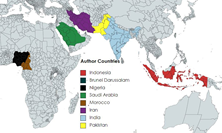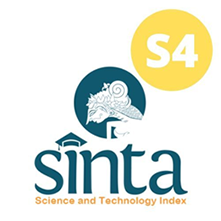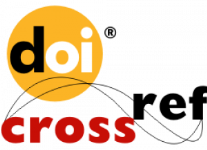Effect of Characteristics and Fatigue of Labor Performance in Shipbuilding Production Room
Abstract
This shipbuilding company is a pioneer company in Indonesia that produces various types of ships supported by technology from Australia (Computer Design Marine). Risky company activities can work fatigue, so companies need to pay attention to the health and safety of workers. In general, work fatigue is a condition that can occur in workers, where workers experience problems both physically and spiritually after work. Work fatigue is a factor that affects the work where fatigue can directly affect the performance of workers. The purpose of this research is to analyze the effect of characteristics and fatigue on the performance of workers. This study used an analytic research method with a p-type approach cross-sectional. Data was collected using interviews. Sampling is using the Simple Random Sampling method with 64 samples which are conducted to the workers in the shipbuilding production room. To determine the effect between two variables, this research used Chi-Square test analysis. The results showed that age (P=0.038), years of service (P=0.041), and fatigue (P=0.000) affected the performance of workers in the shipbuilding production room, while education level (P=1,000) didn’t affect labor performance in the shipbuilding production room. It is recommended for shipbuilding companies to provide training and rewards (for example by giving compensation) to workers so that they will be more enthusiastic in their work activities and it is necessary to provide light sports coaching activities so that the functioning of body organs is helped them to become stronger and not easily tired.

This work is licensed under a Creative Commons Attribution-ShareAlike 4.0 International License.
Authors who publish with this journal agree to the following terms:
- Authors retain copyright and grant the journal right of first publication with the work simultaneously licensed under a Creative Commons Attribution License that allows others to share the work with an acknowledgement of the work's authorship and initial publication in this journal.
- Authors are able to enter into separate, additional contractual arrangements for the non-exclusive distribution of the journal's published version of the work (e.g., post it to an institutional repository or publish it in a book), with an acknowledgement of its initial publication in this journal.
- Authors are permitted and encouraged to post their work online (e.g., in institutional repositories or on their website) prior to and during the submission process, as it can lead to productive exchanges, as well as earlier and greater citation of published work (See The Effect of Open Access).











